Rodrigo Ordonez-Hurtado
Functional Graph Convolutional Networks: A unified multi-task and multi-modal learning framework to facilitate health and social-care insights
Mar 27, 2024



Abstract:This paper introduces a novel Functional Graph Convolutional Network (funGCN) framework that combines Functional Data Analysis and Graph Convolutional Networks to address the complexities of multi-task and multi-modal learning in digital health and longitudinal studies. With the growing importance of health solutions to improve health care and social support, ensure healthy lives, and promote well-being at all ages, funGCN offers a unified approach to handle multivariate longitudinal data for multiple entities and ensures interpretability even with small sample sizes. Key innovations include task-specific embedding components that manage different data types, the ability to perform classification, regression, and forecasting, and the creation of a knowledge graph for insightful data interpretation. The efficacy of funGCN is validated through simulation experiments and a real-data application.
Feature Selection for Functional Data Classification
Jan 11, 2024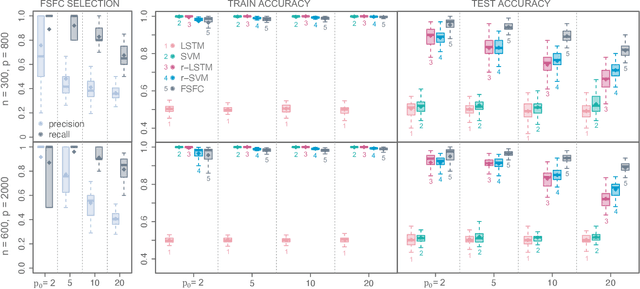
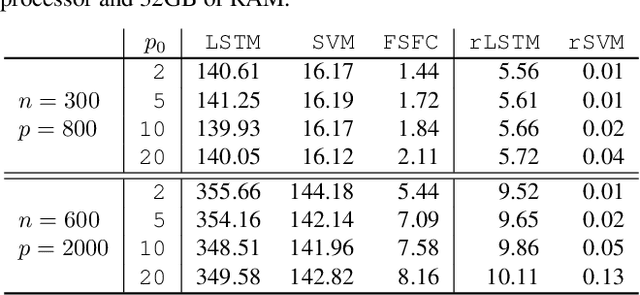
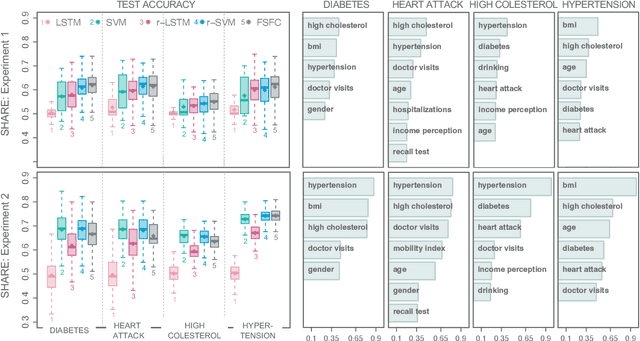
Abstract:Functional data analysis has emerged as a crucial tool in many contemporary scientific domains that require the integration and interpretation of complex data. Moreover, the advent of new technologies has facilitated the collection of a large number of longitudinal variables, making feature selection pivotal for avoiding overfitting and improving prediction performance. This paper introduces a novel methodology called FSFC (Feature Selection for Functional Classification), that addresses the challenge of jointly performing feature selection and classification of functional data in scenarios with categorical responses and longitudinal features. Our approach tackles a newly defined optimization problem that integrates logistic loss and functional features to identify the most crucial features for classification. To address the minimization procedure, we employ functional principal components and develop a new adaptive version of the Dual Augmented Lagrangian algorithm that leverages the sparsity structure of the problem for dimensionality reduction. The computational efficiency of FSFC enables handling high-dimensional scenarios where the number of features may considerably exceed the number of statistical units. Simulation experiments demonstrate that FSFC outperforms other machine learning and deep learning methods in computational time and classification accuracy. Furthermore, the FSFC feature selection capability can be leveraged to significantly reduce the problem's dimensionality and enhance the performances of other classification algorithms. The efficacy of FSFC is also demonstrated through a real data application, analyzing relationships between four chronic diseases and other health and socio-demographic factors.
Enabling the Evaluation of Driver Physiology Via Vehicle Dynamics
Sep 08, 2023

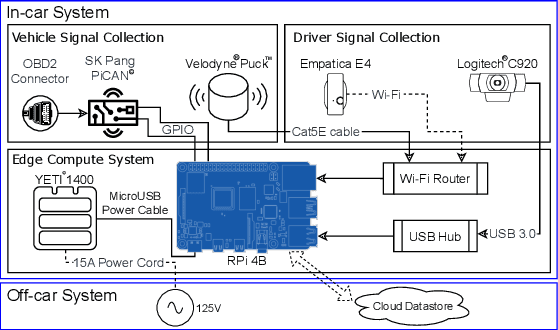
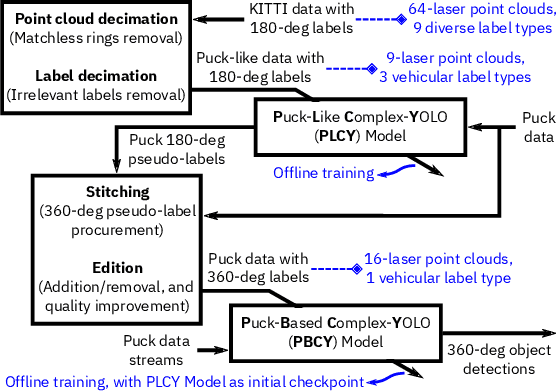
Abstract:Driving is a daily routine for many individuals across the globe. This paper presents the configuration and methodologies used to transform a vehicle into a connected ecosystem capable of assessing driver physiology. We integrated an array of commercial sensors from the automotive and digital health sectors along with driver inputs from the vehicle itself. This amalgamation of sensors allows for meticulous recording of the external conditions and driving maneuvers. These data streams are processed to extract key parameters, providing insights into driver behavior in relation to their external environment and illuminating vital physiological responses. This innovative driver evaluation system holds the potential to amplify road safety. Moreover, when paired with data from conventional health settings, it may enhance early detection of health-related complications.
* 7 pages, 11 figures, 2023 IEEE International Conference on Digital Health (ICDH)
 Add to Chrome
Add to Chrome Add to Firefox
Add to Firefox Add to Edge
Add to Edge